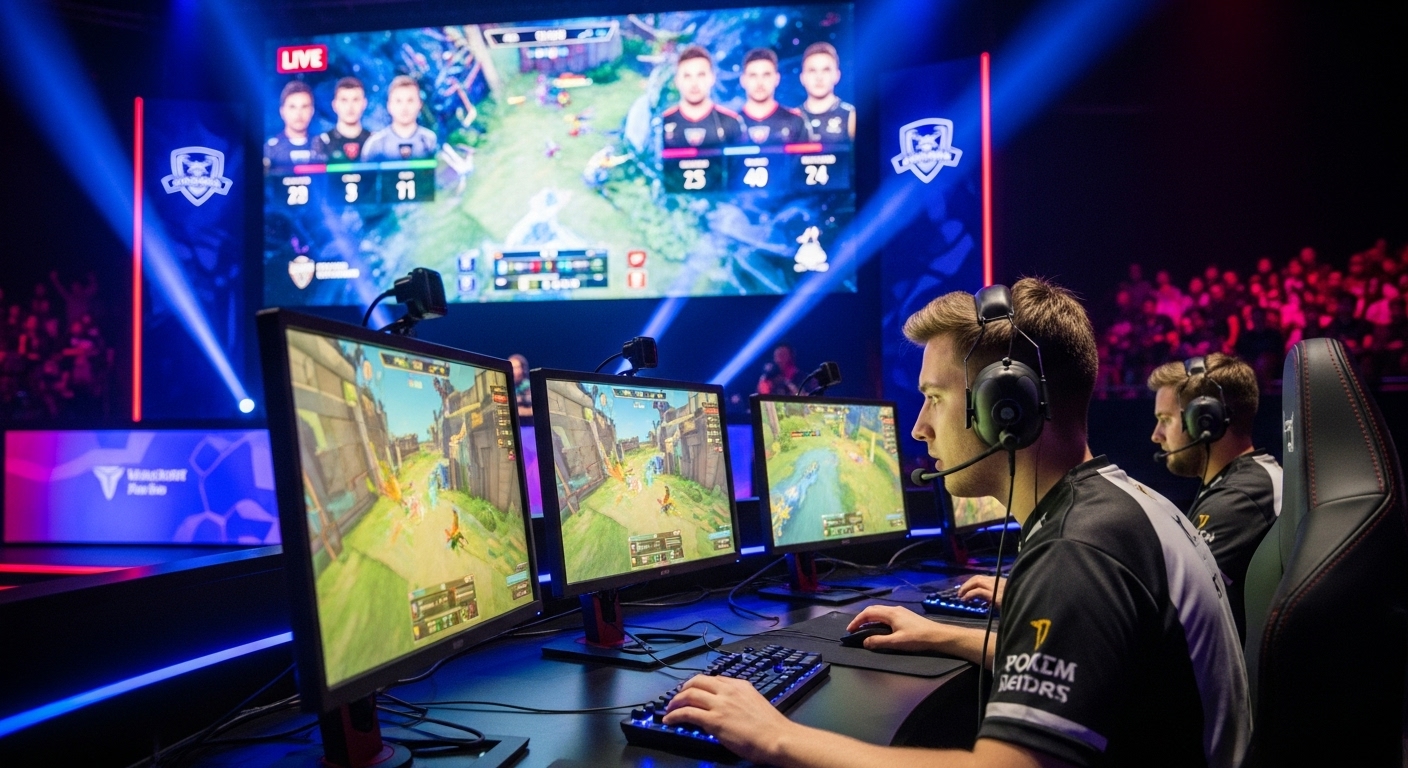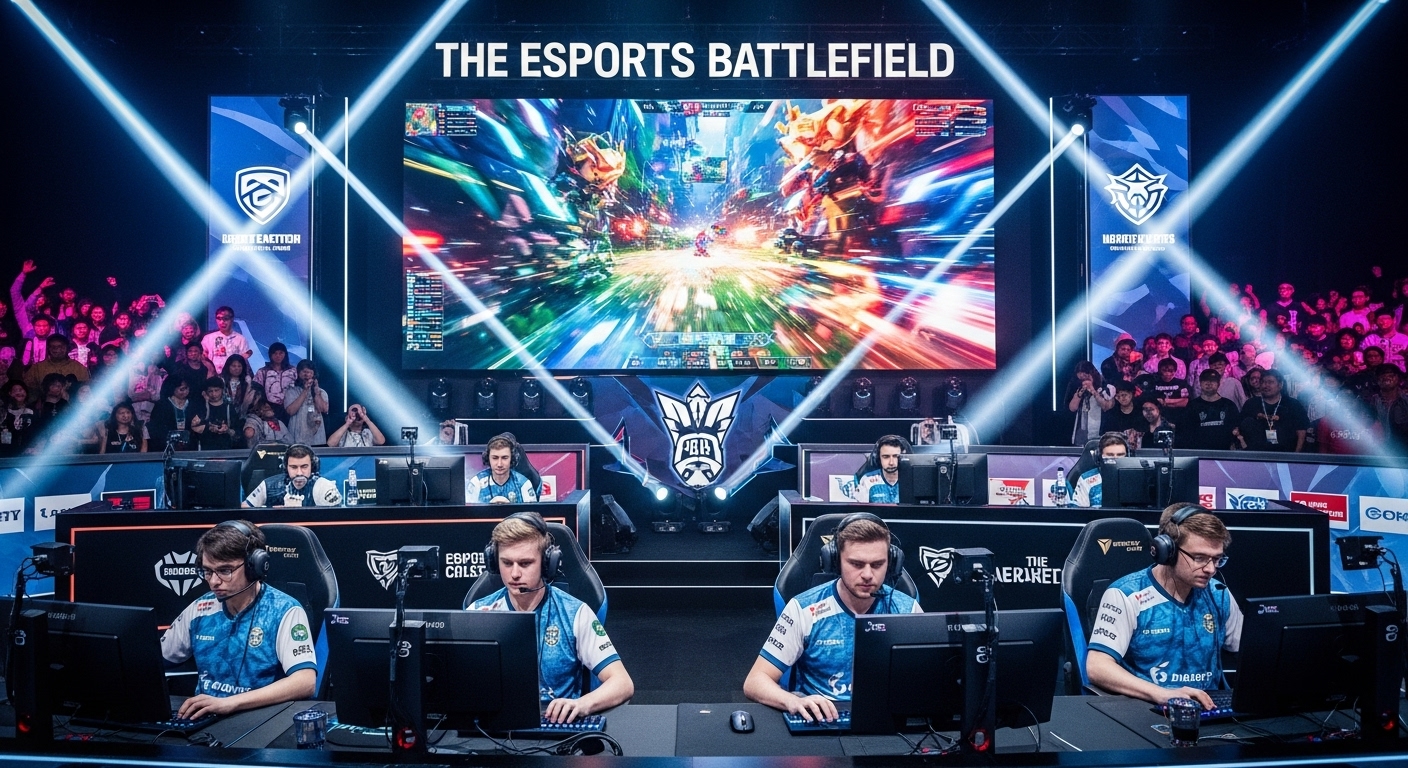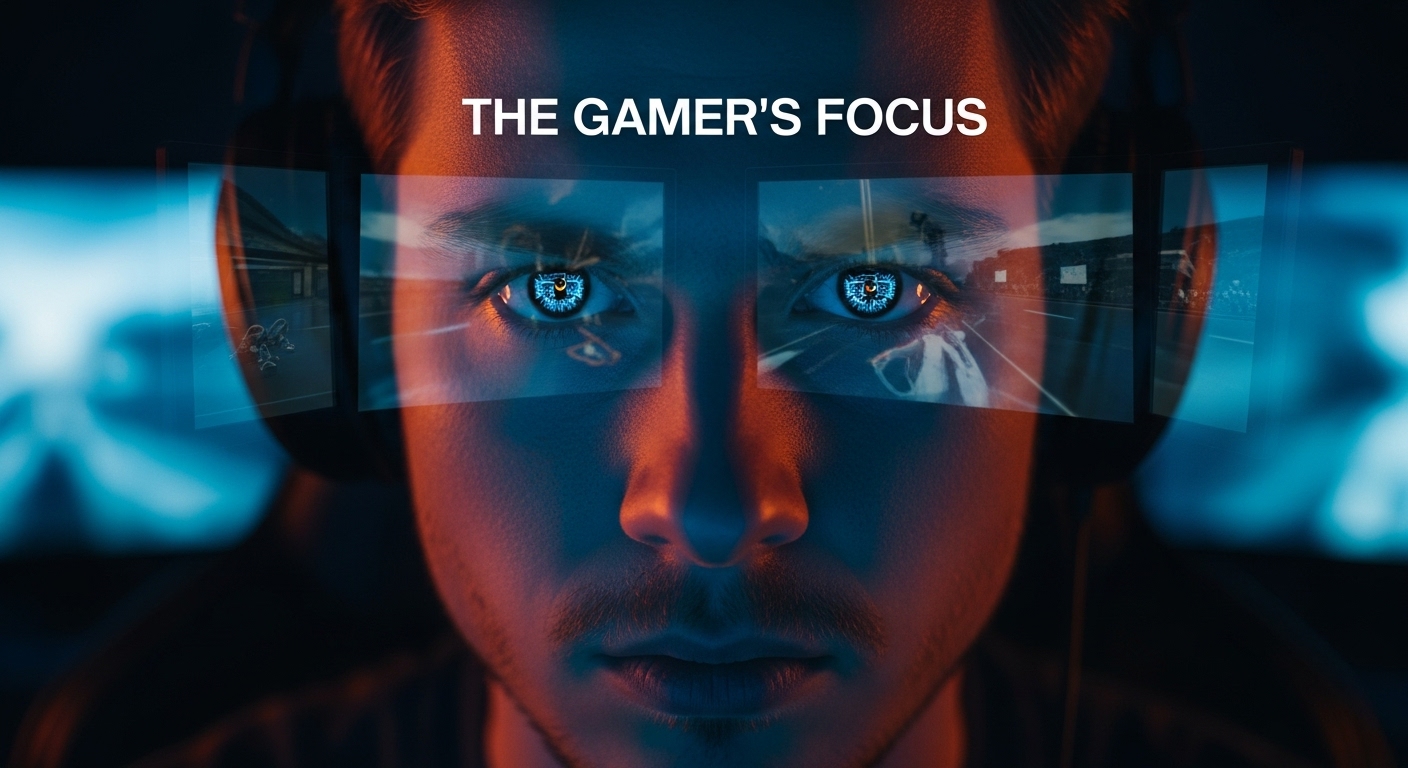Introduction to Esports
In the modern digital age, few phenomena have grown as rapidly and impressively as esports. What began as small gatherings of video game enthusiasts has transformed into a multi-billion-dollar global industry that rivals traditional sports in viewership, sponsorships, and influence. Esports, short for electronic sports, refers to organized competitive gaming where individuals or teams compete against each other in various video game titles. From multiplayer online battle arenas like League of Legends to first-person shooters such as Counter-Strike: Global Offensive, esports encompasses a wide range of genres and styles.
This digital revolution has reshaped entertainment, communication, and even career paths for millions around the world. Esports is no longer just about playing video games for fun; it represents a structured and professional industry filled with athletes, coaches, analysts, broadcasters, and millions of dedicated fans.
The Early Beginnings of Esports
The roots of esports can be traced back to the late 1970s and early 1980s, when arcade tournaments began to capture the public’s imagination. Games like Space Invaders and Pac-Man hosted some of the first competitive events, where players would gather to achieve the highest scores. These events were small in scale but significant in spirit, laying the foundation for competitive gaming culture.
The 1990s saw the rise of PC gaming and local area network (LAN) parties, where players connected their computers for multiplayer matches. Titles such as Quake, StarCraft, and Counter-Strike became staples of early esports competitions. The formation of professional leagues and tournaments during this decade began to shape esports into a recognizable sporting industry. Players started gaining recognition, sponsors began investing, and audiences expanded beyond niche communities.
The Explosion of Esports in the 2000s
The new millennium marked the true acceleration of esports growth. Internet access became widespread, online gaming platforms improved, and streaming services revolutionized how audiences consumed content. Games like Dota, Warcraft III, and Call of Duty gained massive popularity, and tournaments began offering significant prize pools.
South Korea, in particular, became a global hub for esports during this period. The country’s strong internet infrastructure and cultural acceptance of gaming helped turn professional gamers into national celebrities. Television channels dedicated to esports broadcasting emerged, and stadiums filled with passionate fans cheering for their favorite teams became common sights.
Meanwhile, Western countries began to catch up. The emergence of online platforms such as Twitch and YouTube Gaming allowed fans to watch live matches and engage directly with their favorite players. The global esports community became more connected, diverse, and engaged than ever before.
The Rise of Professional Teams and Leagues
As esports matured, professional organizations started forming structured teams, much like traditional sports clubs. These teams operated with management, coaches, analysts, and dedicated players. Sponsorships from major global brands brought credibility and financial stability to the scene. Companies like Intel, Coca-Cola, and various hardware manufacturers began investing in esports, recognizing its immense marketing potential among younger audiences.
Esports leagues emerged, bringing consistency and professionalism to competitions. Titles such as League of Legends, Overwatch, and Valorant introduced franchised leagues that mirrored the structures of major sports organizations. Teams like Fnatic, Team Liquid, T1, and Cloud9 became household names, with massive global fanbases.
The introduction of major international tournaments, such as The International for Dota 2 and the League of Legends World Championship, raised the stakes even higher. These events not only featured multimillion-dollar prize pools but also showcased world-class production quality, rivaling the grandeur of the Olympic Games or the FIFA World Cup.
Esports as a Career Path
The perception of gaming as a hobby has drastically changed over the years. Today, esports offers viable career paths for talented individuals who are passionate about gaming. Professional players train rigorously, often for more than eight hours a day, refining their reflexes, strategies, and teamwork. Just like traditional athletes, they work with coaches, psychologists, and fitness trainers to maintain peak performance.
Beyond players, esports has created numerous career opportunities. Commentators, known as casters, bring excitement and analysis to live matches. Analysts break down game strategies, while event organizers, marketers, and production crews ensure smooth operations. Esports journalism and content creation have also flourished, offering insights, interviews, and entertainment to millions of fans worldwide.
Universities have begun offering scholarships and academic programs in esports, further legitimizing it as a serious field of study and professional pursuit. This growing educational support reflects how deeply esports has integrated into mainstream culture.
The Role of Streaming and Social Media
Streaming platforms have been instrumental in propelling esports into mainstream popularity. Twitch, YouTube Gaming, and other services allow fans to watch their favorite players in real time, fostering a sense of connection and community. Viewers can interact through live chats, subscribe to channels, and even donate directly to players or teams.
Social media platforms like Twitter, Instagram, and TikTok have also played vital roles in shaping esports narratives. Players share their experiences, teams promote upcoming matches, and fans create and spread memes, highlights, and reactions. This constant engagement has made esports a dynamic and ever-evolving cultural phenomenon.
Unlike traditional sports, esports content is available 24/7 across the globe. Fans can tune into tournaments happening in different regions at any hour, creating a truly global entertainment ecosystem.
The Global Appeal of Esports
Esports transcends cultural and linguistic boundaries. Players from different parts of the world come together to compete on an equal playing field, united by a shared passion for gaming. This inclusivity has been one of the major driving forces behind its global success.
Regions like Europe, North America, China, and Southeast Asia have become major esports markets. Each region has its unique gaming culture, but all contribute to the collective growth of the industry. International tournaments bring these regions together, creating epic rivalries and unforgettable moments.
The global appeal of esports also lies in its accessibility. Anyone with a computer or gaming console and an internet connection can participate, practice, and eventually rise to professional levels. This democratic nature contrasts sharply with traditional sports that often require specific facilities, equipment, and funding.
The Economic Impact of Esports
The esports industry has evolved into a massive economic powerhouse. Revenue streams include sponsorships, advertising, media rights, merchandise, ticket sales, and in-game purchases. Brands view esports as an opportunity to reach the highly coveted 18-to-34 age demographic, which is increasingly shifting away from traditional media.
Cities and governments have recognized the value of esports tourism. Hosting major tournaments attracts thousands of visitors, stimulates local economies, and positions cities as digital innovation hubs. Venues such as arenas and convention centers have adapted to accommodate large-scale esports events, complete with giant screens, advanced lighting, and immersive sound systems.
Furthermore, game developers themselves benefit immensely from esports ecosystems. Competitive gaming helps sustain interest in a title long after its release, driving sales and engagement. This symbiotic relationship between game developers, organizers, and players ensures continuous industry growth.
The Psychological and Social Dimensions of Esports
Beyond its entertainment and economic aspects, esports holds deep psychological and social significance. For many, gaming communities offer belonging, friendship, and shared purpose. Team-based games promote collaboration, communication, and strategic thinking.
However, the competitive nature of esports also introduces challenges such as stress, burnout, and mental fatigue. Professional players often face immense pressure to perform consistently, sometimes at the expense of personal well-being. Recognizing this, many organizations now prioritize mental health programs and balanced training schedules.
Esports has also been a tool for inclusion and diversity. Players of different genders, backgrounds, and abilities participate and contribute to the scene. Initiatives promoting women in gaming, accessibility for disabled players, and anti-toxicity campaigns are shaping esports into a more inclusive environment.
The Role of Technology in Esports Advancement
Technological innovation has been a cornerstone of esports development. High-performance gaming hardware, ultra-fast internet connections, and cutting-edge software enable seamless gameplay and broadcasting. Virtual reality and augmented reality are poised to redefine competitive gaming experiences in the near future.
Artificial intelligence is also making its mark, assisting with data analysis, player training, and real-time commentary enhancements. Advanced analytics help teams understand opponents’ strategies and optimize performance, similar to how professional sports teams use data science.
Additionally, cloud gaming and mobile esports are expanding accessibility. Titles like PUBG Mobile and Mobile Legends have brought competitive gaming to smartphones, opening doors for millions who may not own gaming PCs or consoles.
Esports and Traditional Sports: A Symbiotic Relationship
While esports and traditional sports may seem worlds apart, they share numerous similarities. Both involve teamwork, strategy, training, and competition. Traditional sports organizations have increasingly embraced esports, forming partnerships and even acquiring esports teams.
For example, football clubs have established esports divisions, allowing fans to represent their favorite teams in digital arenas. This crossover has blurred the lines between physical and digital sports, creating a hybrid entertainment ecosystem.
Esports events now feature celebrity appearances, music performances, and elaborate ceremonies—mirroring traditional sports spectacles. The inclusion of esports in multi-sport events, such as the Asian Games, further signifies its growing legitimacy as a form of athletic competition.
The Cultural Influence of Esports
Esports has deeply influenced modern culture, shaping how people view gaming, technology, and entertainment. Its presence is felt in fashion, music, movies, and education. Gaming-inspired clothing lines, themed cafes, and even esports documentaries have become mainstream.
The rise of gaming influencers has also shifted celebrity culture. Streamers and professional players now enjoy massive followings, brand endorsements, and cultural influence. They serve as role models for younger generations, demonstrating that passion for gaming can lead to success and recognition.
Esports has also encouraged global conversations about digital literacy, online behavior, and responsible gaming. Schools and parents increasingly recognize the cognitive and social benefits of structured gaming, from problem-solving to leadership development.
Challenges Facing the Esports Industry
Despite its meteoric rise, esports faces several challenges. Issues such as player burnout, lack of standardized regulations, cheating, and online toxicity persist. Maintaining competitive integrity and ensuring player welfare are ongoing priorities.
Another concern is sustainability. As prize pools and event costs soar, smaller organizations struggle to keep up financially. Balancing profitability with inclusivity remains a complex issue for the industry.
Moreover, the fast-paced nature of gaming means that esports titles can lose relevance quickly. Developers must continuously update and innovate to keep players and fans engaged. The volatility of game popularity poses risks to long-term planning for teams and sponsors.
The Future of Esports
The future of esports appears brighter than ever. As technology continues to evolve, the lines between gaming, entertainment, and social interaction will blur even further. Virtual reality tournaments, AI-assisted coaching, and metaverse-based competitions are just the beginning.
Esports is also likely to gain more recognition in educational and professional domains. Schools will continue to introduce esports programs, and job opportunities will expand across marketing, management, production, and technology sectors.
With global audiences projected to surpass hundreds of millions, esports will remain at the forefront of digital innovation and cultural evolution. It will not only entertain but also inspire new generations to connect, compete, and create in ways never imagined before.
Conclusion
Esports is more than just competitive gaming; it is a reflection of how society has adapted to the digital era. It combines technology, passion, creativity, and community into a powerful global movement. From humble arcade beginnings to massive international tournaments, esports has rewritten the rules of competition and entertainment.
As the industry continues to evolve, it will undoubtedly shape the future of sports, media, and culture. Esports represents not only the rise of digital athletes but also the limitless potential of human creativity in a connected world. It stands as a testament to how far gaming has come—and how much farther it can go.



